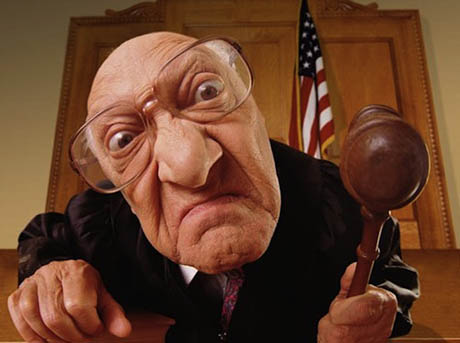For a moment Thursday afternoon, I didn’t even feel like myself. I felt angry because I wanted to control a situation that I couldn’t control.
My anger turned to ugly words. I didn’t lash out very much. It was just a couple of sentences, but I was completely wrong. I had enough sense to realize — even as I was speaking — that I was handling a situation poorly. I walked out before I could say anything more and make things worse.
I went and sat down in a room by myself. I was flooded with a variety of feelings. I was angry, frustrated, hurt and — within a minute of so — ashamed.
It doesn’t matter what the problem was or what caused it. I’ve been thinking ever since then about a terrible pattern that I see in myself every now and then — not often, but more often than I like to admit.
When I am feeling especially needy in the emotional sense, I start to feel the need to be controlling. When I need something emotionally that I can’t get by myself, that turns to frustration and I express my frustration by trying to control others around me. Something about taking control can let me feel less needy — as though I’ve found a way to force my will into reality.
It’s a terrible pattern and I never realize I’m doing it until I’ve stepped over some line and become someone I don’t want to be. And I immediately know I’m in the wrong.
It’s reasonably simple to apologize to human beings — to say, “Hey, I’m sorry I said that. I was wrong. Will you forgive me?”
What’s not so easy — at least for me — is to forgive myself in such cases.
I’m terrified of turning into a controlling person. I know it would be easy for me to to justify myself. It would be easy to argue — with some justification — that other people would be better off if they’d do things my way and let me control situations. It would be easy for me to say that I’m smarter and that I see things they don’t see and that they should simply follow me.
But it would be a lie.
The problem I face, though, isn’t simply admitting the problem and working on the underlying issues that can cause the behavior. The bigger problem is that a harsh inner judge won’t easily allow me to forgive myself.
That harsh inner judge condemns me. He tells me I’m a nasty person. He tells me I’m a failure at becoming the loving, caring person I want to be.
And when I’m feeling the shame of the aftermath of when I’ve handled something poorly, I believe that harsh inner judge. I believe I’m a terrible person. I feel like a failure.
I happened to listen to a podcast episode Thursday morning about self-compassion. The woman being interviewed said she believes all depression ultimately goes back to some form of self-hatred. She said we have to learn to have compassion for ourselves — even when we’re wrong.
I instinctively know she’s right, but I fight a battle inside myself when I exhibit behavior I hate — especially behavior I fear. I don’t want to excuse myself and let myself get away with it. On the other hand, I know from experience that harsh punishment — especially through shame and ugly self-talk — ultimately makes things worse.
And so I struggle to reconcile two things. I want to hold myself accountable when I fail to live up to my own standards. But I also want to love and accept myself when I fail — even when I do fail to live up to my own standards. And it is very difficult to fulfill both requirements.
I have a feeling I’ll always struggle with this. Maybe there’s no alternative since perfection isn’t possible.
Maybe this is why we all seem to need a partner who understands us — someone who knows when to pull us back from our worst selves and who also knows how to save us from our most judgmental selves when we heap shame on ourselves.
Loving ourselves and having compassion for ourselves can be hard. It helps when someone who loves and understands us is there to help.

 Ruthless impersonal judgment is typical tool of cultural conformity
Ruthless impersonal judgment is typical tool of cultural conformity Democrats to Cory Booker: There’s no room for honesty in politics
Democrats to Cory Booker: There’s no room for honesty in politics To think clearly, turn off the tube: Your television is not your friend
To think clearly, turn off the tube: Your television is not your friend